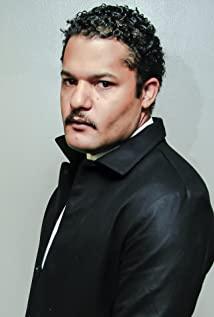"I Know This Much Is True," based on Wally Lamb's original book, hits HBO this May. The short six-episode limited series, by focusing on the story of three generations of an Italian immigrant family, shuttles between family, love and friendship, and longitudinally shows us the history of redemption of this family and American society spanning a hundred years.
As the plot develops gradually, as the series of tragedies and tragedies are slowly revealed, the core of the series also appears - redemption and forgiveness. In the family history spanning three generations, each generation has its own sins, and also suffers different punishments for the sins of the previous generation, and walks on different paths of redemption. "I Know This Is True" condenses the sins of the United States for nearly a hundred years into a family change by using the small to see the big, and tells us, who made what wrong? How should it be repaid?
racial sin
In the story, the manuscript diary of Dominic's grandfather is the button connecting the story, and it is also an important clue for Dominic to find his biological father. After we slowly learn the contents of Dominic's grandfather's diary, the show's first sin emerges -- the sin of race. The Dominica family immigrated from Italy, and their grandfather was the family's first-generation immigrant to the United States.
The American continent of the 1930s promoted white supremacy, and grandfather Dominic was the beneficiary of this period. Dominica used money to buy a wife, and repeatedly emphasized the requirement of pure Italian blood, avoiding the Indiana blood of the native America. Racial harshness runs in the blood of the family. When Dominica was in elementary school, there was another pair of Indian twins in the same class, but Dominica always believed in his heart that only he and his brother were "pure", and the Indian twins were "dirty", so they lied and harmed Among them, the sister, and finally the Indian girl committed suicide because of stress. Tolerance of different races and nationalities is one of the long-standing social problems in American society.
In the so-called advanced and developed capitalist society, the American people thought that after hundreds of years of development, they could treat racial issues with a normal mind, but just like Dominic and his grandfather, the contempt and hatred of primitive native races are ingrained. This is a question that the screenwriter and the original author asked the audience, especially the American audience, can you really tolerate other races in the 21st century? The politics and history of the drama itself are repeated in today's American society, and once again taught the American people a history lesson, admonishing them how to find answers in such sensitive topics. Such a topic of social significance, as a sub-line, has always supported the development of the main line of "Dominic saves his brother".
At the end, we learn that the biological father of Dominic and Thomas is the father of the Indian twins, and they themselves have half Indiana ancestry. At that time, the sub-line of "finding the biological father" will rise to the main line of the story. "Original Sin" combined with family affection, draws an end to the road of redemption that began with Dominic's grandfather. The other side of the period is family affection, in other words, selfless love. This family affection can break the curse of the family and degrade the sins spanning a hundred years. At the same time, it also restores this forgotten for the current American society. , the classical methodology.
sex crime
There are not many female characters in the drama, but all of them are distinct and represent different female voices. The group portrays the misunderstandings and disasters that women have suffered in the United States in the past 100 years. Whether it was grandfather's Italian wife, Dominic's mother, Dominic's first wife or his girlfriend, they each issued a "Declaration of Independence" for women in love, marriage, family and fertility. The status of American women was gradually recognized by society in the 1950s. In this society that has always been dominated by white men, women's rights and freedoms have always been in a state of "imprisonment". And there is no right to choose in reproduction, everything is decided by men.
This is also the second sin of the Dominic family and the American society that has been atonement for a hundred years - the sin of sex. This kind of "imprisonment" also exists in the male group, and Dominic's brother Thomas is a prisoner. Thomas' behavior is often insufferable because of schizophrenia, and his lack of self-care and relative weakness is regarded by his adoptive father as a lack of male genes, a male scum. Frustrated by his adoptive father's domestic violence, Thomas's illness aggravated for a while, and his mother, also threatened by violence from his adoptive father, had to compromise before this type of male totalitarianism. Generation after generation, the women in the Dominic family wanted to use their own power to break the shackles. Until the end, it was because of Dominic's bowing his head that this sin was resolved. But such an answer is incomplete, because it comes from the opposite of men, not the liberation of women themselves. Screenwriters and writers are all alert to the audience. The road to liberation of women is a long way to go and will take time.
sin of faith
The episode begins with Thomas cutting off his right hand with a knife at the public library, declaring that he is atoning to God in order to prevent the outbreak of the Gulf War. In the flashback clips, Thomas also often mentioned historical events such as the "Vietnam War" and "American Invasion of Afghanistan". He believes that his beliefs can bring peace and spread to more American people, allowing them to regain their beliefs in the panic. This is also the third sin of the show - the sin of faith.
The new generation of the American dream in the 20th century has become a bubble of American hegemony. Under the cover of this bubble, the American people live in a state of intoxication and gradually lose their faith in cultural aggression and political expansion. Thomas is a new generation of missionaries in the 20th century in the United States. They are not recognized by society and are often spurned by society because they are walking signs and loudly publicize the evil of the American government. They will even sacrifice themselves to avoid this crisis of faith, and such strange behavior brings disaster to them. Apart from beliefs, this is also a struggle between individualism and collectivism. He refuted the Puritan spirit of "advocating freedom" and "individualism" in the United States, because in American history, individualism has always prevailed. The emphasis on sacrifice, collectiveness, and forgiveness exemplified by Thomas is in the minority.
At the end, Thomas committed suicide by jumping into the river, and this road of atonement about faith was also forced to stop, but the search for the answer did not end. This is also the blank of the show. How does the United States deal with this 21st century faith crisis? Should the American people continue to follow in the footsteps of the government, or go their own way?
The dimension of the drama is very wide, starting from the family, showing the history and crimes of a country for nearly a hundred years. Such evils are often bidirectional. The behavior of the state and society always subtly affects everyone's behavior, while the individual behavior is regarded by the state and society as a response. This two-way relationship is first established in the series with the Dominic and Thomas brothers. In the exchanges with social care workers and psychiatrists, Dominic gradually discovered that what he was trying to save was not just his brother, but himself. The one-way rescue and understanding between brothers gradually escalated to two-way. This layer of two-way rescue relationship gradually rises to the relationship between the state and the individual, and describes the relationship between the group and the individual, which affects and interacts with each other.
The sins of the country are deeply embedded in Dominica’s family, and the price paid by the Dominica family, whether in race, gender or creed, invisibly reflects the road ahead for the United States. This kind of creative technique is very ingenious. He framed historical phenomena in individual families or individuals, which is relatively common in some literary creations, such as "Thunderstorm", "One Hundred Years of Solitude" and "My Gifted Girlfriend". By narrating individual stories, the author expands Open, show a historical group portrait, slowly tell the faults of society and the rise and fall of the country in history. This kind of story shuttles between the macro and the micro, making this two-way relationship not rigid and very natural.
The series is narrated from a Dominic first-person perspective, which not only enhances the emotional color of the story, but also strengthens the literary nature of the story, retaining the literary color of the original book. Self-procedural techniques are common in movies. For example, in most of Wong Kar-wai's works, he tends to use the narrative from the protagonist's perspective to promote the emotional interaction between the works and the audience. Taking family affection as the carrier, director Derek creates a multi-level emotional atmosphere for the audience by using this narrative technique. At the reprint point and climax of the plot, the audience can immerse themselves in the sad atmosphere created by the drama. In the same way, Derek used time crossing and montage techniques many times, constantly jumping and flashing back in time, constantly interspersing and reappearing in the plot, and constructing various characters in different latitudes and longitudes, so as to portray the core characters of the series from multiple angles.
The advantage of Derek is that he can always capture the tiniest changes and the most inconspicuous movements in the family, and translate them into the root of this emotional deterioration. Whether it is the mutual help between the two brothers at home when they were young, the parting ways in college, or the long-term companionship in middle age, the fragments of these different periods are pieced together little by little in six episodes to form a complete touching picture of the twins of destiny .
Derek is good at portraying family and affection. In his 2010 work "Blue Valentine", he used the same expression, flashing back and forth, depicting the gradually fragmented marriage of hero Dean and heroine Cindy. The switching of lens language is also another reason why "I Know It's True" is so good. In the flashback clips, Derek usually chooses to hold the camera, and the camera shakes with the character seems to cast a veil on the picture, just like the memory deep in Dominic's mind, sometimes vivid but blurry. It is impossible to see what changed their brother's fortunes. In real-life clips, Derek will choose to use high-definition special effects shots.
Every frame is clearly visible, whether it's Thomas screaming in the mental hospital, or Dominic turning around and leaving in anger because his girlfriend Joey cheated and got pregnant unexpectedly, the painful experience in reality is so real and so direct. Hand-held and high-definition, as if to construct two different emotional tones for the story, one is vague, creating a maze for the plot, letting the protagonist immersed in it and exploring the path of destiny; the other is clear, set for the story A mirror, let the protagonist face life and find a way out of the predicament. The cool-colored art throughout the whole process is combined with the framing of Connecticut, which puts a unique layer of sadness on the wet scene. The picture and the plot are interconnected, just like "Olive Kitteridge", which makes the audience feel every second. Immerse yourself in the cool atmosphere that is purely this show.
Akutagawa Ryunosuke once wrote in "Kappa": You have to say your own sins, and you will disappear when you say your sins. Dominic finally spoke out about his sins, so what about society? Atonement and forgiveness, the answer has always been in everyone's heart.
View more about I Know This Much Is True reviews











